-
 Bitcoin
Bitcoin $118100
-0.44% -
 Ethereum
Ethereum $3585
5.43% -
 XRP
XRP $3.434
5.65% -
 Tether USDt
Tether USDt $1.000
0.02% -
 BNB
BNB $743.8
3.89% -
 Solana
Solana $178.7
3.84% -
 USDC
USDC $1.000
0.03% -
 Dogecoin
Dogecoin $0.2381
12.81% -
 TRON
TRON $0.3270
3.62% -
 Cardano
Cardano $0.8315
4.93% -
 Hyperliquid
Hyperliquid $44.51
-4.42% -
 Stellar
Stellar $0.4710
1.52% -
 Sui
Sui $3.896
-2.51% -
 Chainlink
Chainlink $18.09
6.98% -
 Hedera
Hedera $0.2681
9.31% -
 Bitcoin Cash
Bitcoin Cash $516.7
4.83% -
 Avalanche
Avalanche $23.95
6.96% -
 Shiba Inu
Shiba Inu $0.00001490
5.67% -
 UNUS SED LEO
UNUS SED LEO $8.966
0.80% -
 Toncoin
Toncoin $3.294
4.39% -
 Litecoin
Litecoin $105.4
4.69% -
 Polkadot
Polkadot $4.356
5.30% -
 Uniswap
Uniswap $10.29
17.25% -
 Monero
Monero $327.9
-3.04% -
 Bitget Token
Bitget Token $4.942
4.33% -
 Ethena USDe
Ethena USDe $1.001
0.08% -
 Pepe
Pepe $0.00001348
2.17% -
 Dai
Dai $1.000
0.02% -
 Aave
Aave $320.8
0.58% -
 Bittensor
Bittensor $411.8
-4.07%
What does the TRIX slope tell you
The TRIX slope helps traders gauge momentum strength, with rising slopes signaling bullish momentum and falling slopes indicating weakening trends or potential reversals.
Jul 16, 2025 at 09:42 pm
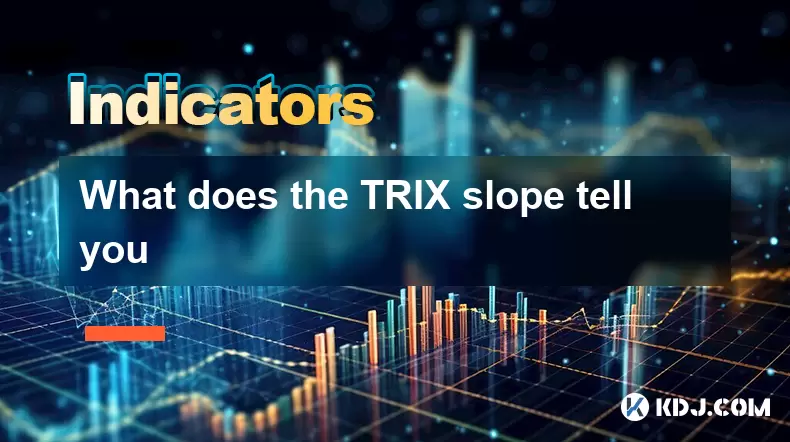
Understanding the TRIX Indicator
The TRIX (Triple Exponential Moving Average) indicator is a momentum oscillator used in technical analysis to identify oversold and overbought conditions, as well as potential trend reversals. It is derived by calculating the percentage change in a triple exponential moving average of a security’s closing price. The TRIX slope, specifically, refers to the direction and steepness of the TRIX line on a chart. This slope provides traders with insights into the strength and sustainability of a current trend.
When analyzing the TRIX slope, it's essential to understand how it reacts to price movements. A rising TRIX slope indicates increasing positive momentum, while a falling TRIX slope suggests weakening momentum or the possibility of a reversal. Traders often use this information to time entries and exits more effectively.
TRIX Slope is not just about direction; it also reflects the acceleration or deceleration of price movement.
Interpreting a Positive TRIX Slope
A positive TRIX slope occurs when the TRIX line moves upward. This typically signals that the underlying asset is experiencing upward momentum. When the slope becomes steeper, it implies that the buying pressure is intensifying. In such scenarios, traders may look for opportunities to enter long positions or hold existing ones.
It's important to note that a positive TRIX slope doesn't always guarantee a bullish outcome. Sometimes, a sharp rise in the slope can indicate an overbought condition, especially if the price has already moved significantly higher. This could signal a potential pullback or consolidation phase.
- A steeply rising TRIX slope may suggest strong bullish momentum.
- A flattening TRIX slope during a rally might warn of weakening momentum.
- Crossovers above the zero line confirm a shift from bearish to bullish territory.
Traders often combine the TRIX slope with other indicators like RSI or MACD to filter out false signals and enhance accuracy.
Decoding a Negative TRIX Slope
Conversely, a negative TRIX slope indicates declining momentum. If the TRIX line is trending downward, it means that the triple EMA is decreasing, suggesting selling pressure. A steep negative slope usually points to accelerating downside momentum, which can be a precursor to further price declines.
However, similar to the positive scenario, a prolonged negative TRIX slope can also lead to oversold conditions. These situations may present contrarian trading opportunities, especially if other technical indicators begin to show signs of divergence or exhaustion.
- A sharply declining TRIX slope confirms bearish dominance.
- A flattening TRIX slope in negative territory may indicate waning sell pressure.
- Crossing below the zero line reinforces a bearish bias.
Using the TRIX slope in conjunction with volume indicators can help assess whether the decline is supported by actual market participation or simply noise.
TRIX Slope and Divergence Analysis
One of the most powerful applications of the TRIX slope is in identifying divergences between price action and momentum. Divergence occurs when the price makes a new high or low, but the TRIX slope fails to confirm that move. This often signals a potential reversal.
For example, if the price reaches a new high but the TRIX slope forms a lower high, it suggests that momentum is weakening despite the price increase. Similarly, a bullish divergence occurs when the price makes a new low but the TRIX slope forms a higher low, indicating hidden strength.
- Bearish divergence appears when price makes higher highs but TRIX slope makes lower highs.
- Bullish divergence shows when price makes lower lows but TRIX slope makes higher lows.
- Divergence should be confirmed using candlestick patterns or support/resistance levels.
This method allows traders to anticipate turning points before they are fully reflected in price charts.
How to Calculate and Plot the TRIX Slope
To calculate the TRIX slope, you first need to compute the Triple Exponential Moving Average (TEMA). This involves smoothing the price data three times using exponential moving averages (EMAs). Once you have the TEMA, subtract the previous day’s value from the current one and divide by the previous value to get the percentage change.
Plotting the TRIX slope on a chart involves setting up your preferred trading platform to display the TRIX indicator. Most platforms offer customizable settings, allowing users to adjust the period length (commonly 14 or 20).
Here’s how to set it up:
- Select the asset you want to analyze.
- Add the TRIX indicator from the list of available tools.
- Adjust the period setting based on your trading strategy (e.g., 14 for short-term, 20 for medium-term).
- Enable the slope visualization option if available.
- Overlay the TRIX indicator on the price chart to observe interactions.
Some platforms allow for additional customization, such as coloring the TRIX line differently based on its slope direction.
Frequently Asked Questions
Q: Can the TRIX slope be used for scalping strategies?
Yes, the TRIX slope can be adapted for scalping by using shorter timeframes and smaller period settings. However, it's crucial to combine it with other fast-reacting indicators like the Stochastic RSI to avoid whipsaws.
Q: Is the TRIX slope reliable across all market conditions?
While the TRIX slope is effective in trending markets, it may produce false signals during sideways or choppy conditions. Filtering trades with volume or volatility indicators can improve reliability.
Q: How does the TRIX slope compare to the MACD slope?
Both the TRIX slope and MACD slope measure momentum, but TRIX tends to be smoother due to triple smoothing. This reduces lag and can provide earlier signals in some cases.
Q: Can I automate trading based on the TRIX slope?
Yes, many algorithmic traders incorporate the TRIX slope into their systems. However, backtesting is essential to ensure that the logic performs consistently across different market cycles.
Disclaimer:info@kdj.com
The information provided is not trading advice. kdj.com does not assume any responsibility for any investments made based on the information provided in this article. Cryptocurrencies are highly volatile and it is highly recommended that you invest with caution after thorough research!
If you believe that the content used on this website infringes your copyright, please contact us immediately (info@kdj.com) and we will delete it promptly.
- Coinbase (COIN) Soars to All-Time High: What's Next?
- 2025-07-19 00:30:12
- DOGE, BlockDAG, and Vesting: What's Hot and What's Not in Crypto Right Now
- 2025-07-19 01:10:14
- Crypto Coins with 2025 Potential: BlockDAG and SUI Lead the Charge
- 2025-07-19 01:15:12
- Grass Cutting Hacks: Finding the Right Height for a Lush Lawn
- 2025-07-19 00:30:12
- RWA Token Revolution: Stage Point Europe Leads Crypto Real Estate Launch in Europe
- 2025-07-19 00:50:13
- Token Unlocks and AVAIL: July's Crypto Cliffhangers!
- 2025-07-19 00:50:13
Related knowledge
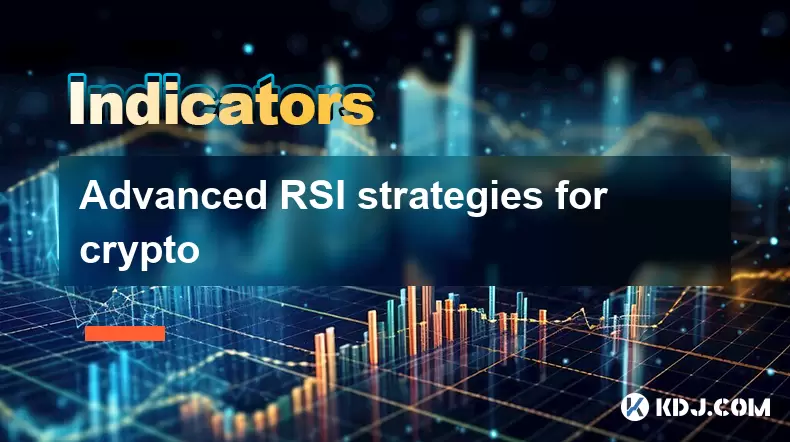
Advanced RSI strategies for crypto
Jul 13,2025 at 11:01am
Understanding the Basics of RSI in Cryptocurrency TradingThe Relative Strength Index (RSI) is a momentum oscillator used to measure the speed and chan...
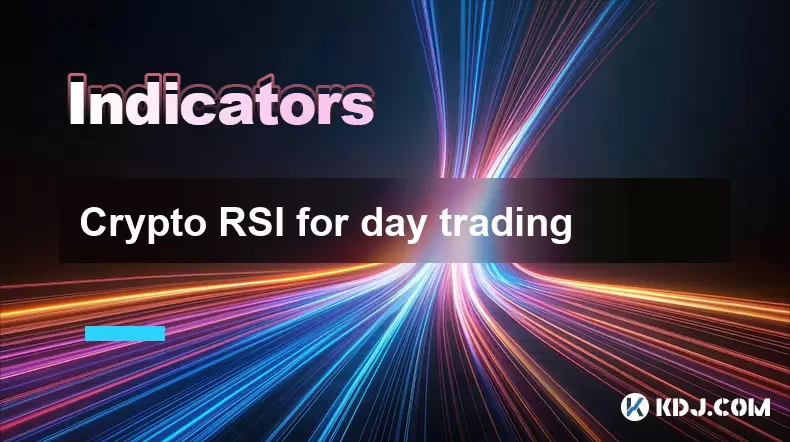
Crypto RSI for day trading
Jul 12,2025 at 11:14am
Understanding RSI in the Context of Cryptocurrency TradingThe Relative Strength Index (RSI) is a momentum oscillator used to measure the speed and cha...
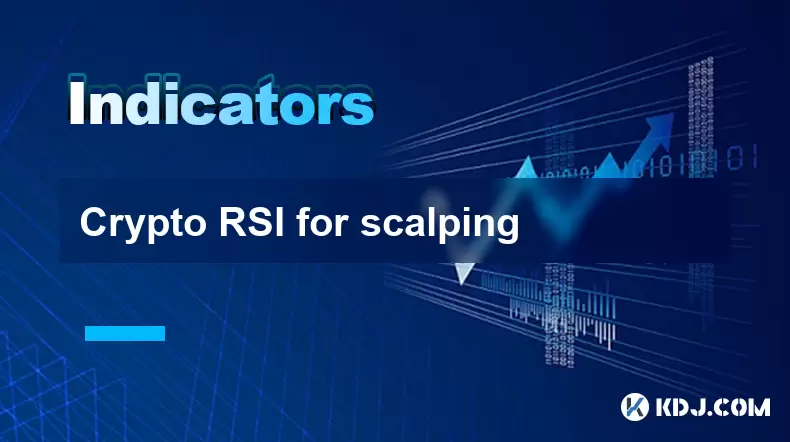
Crypto RSI for scalping
Jul 12,2025 at 11:00pm
Understanding RSI in the Context of Crypto TradingThe Relative Strength Index (RSI) is a momentum oscillator widely used by traders to measure the spe...
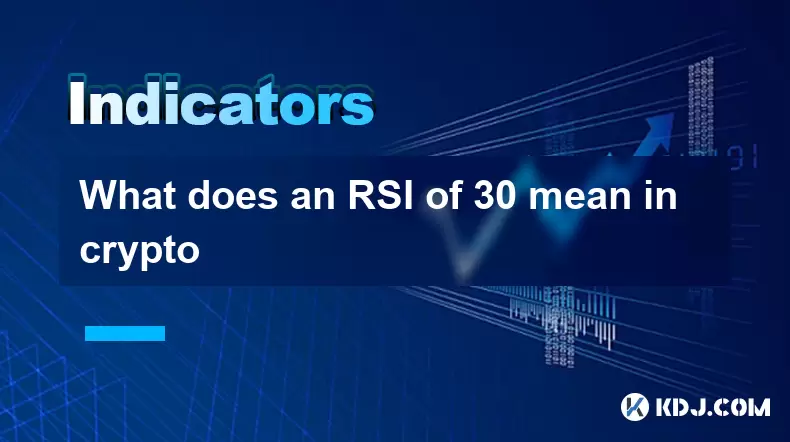
What does an RSI of 30 mean in crypto
Jul 15,2025 at 07:07pm
Understanding RSI in Cryptocurrency TradingRelative Strength Index (RSI) is a momentum oscillator widely used in cryptocurrency trading to measure the...
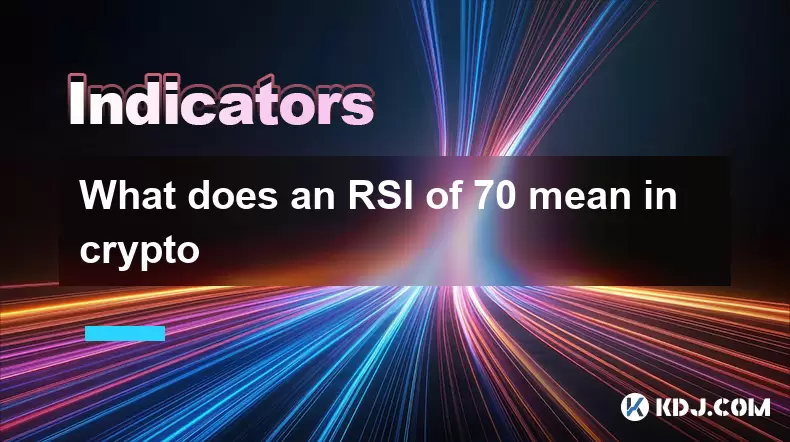
What does an RSI of 70 mean in crypto
Jul 13,2025 at 06:07pm
Understanding the RSI Indicator in Cryptocurrency TradingThe Relative Strength Index (RSI) is a widely used technical analysis tool that helps traders...
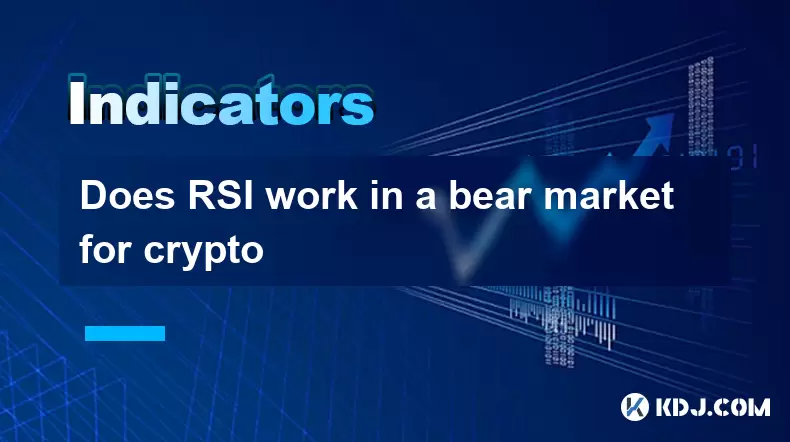
Does RSI work in a bear market for crypto
Jul 16,2025 at 01:36pm
Understanding RSI in Cryptocurrency TradingThe Relative Strength Index (RSI) is a momentum oscillator used by traders to measure the speed and change ...

Advanced RSI strategies for crypto
Jul 13,2025 at 11:01am
Understanding the Basics of RSI in Cryptocurrency TradingThe Relative Strength Index (RSI) is a momentum oscillator used to measure the speed and chan...

Crypto RSI for day trading
Jul 12,2025 at 11:14am
Understanding RSI in the Context of Cryptocurrency TradingThe Relative Strength Index (RSI) is a momentum oscillator used to measure the speed and cha...

Crypto RSI for scalping
Jul 12,2025 at 11:00pm
Understanding RSI in the Context of Crypto TradingThe Relative Strength Index (RSI) is a momentum oscillator widely used by traders to measure the spe...

What does an RSI of 30 mean in crypto
Jul 15,2025 at 07:07pm
Understanding RSI in Cryptocurrency TradingRelative Strength Index (RSI) is a momentum oscillator widely used in cryptocurrency trading to measure the...

What does an RSI of 70 mean in crypto
Jul 13,2025 at 06:07pm
Understanding the RSI Indicator in Cryptocurrency TradingThe Relative Strength Index (RSI) is a widely used technical analysis tool that helps traders...

Does RSI work in a bear market for crypto
Jul 16,2025 at 01:36pm
Understanding RSI in Cryptocurrency TradingThe Relative Strength Index (RSI) is a momentum oscillator used by traders to measure the speed and change ...
See all articles

























































































